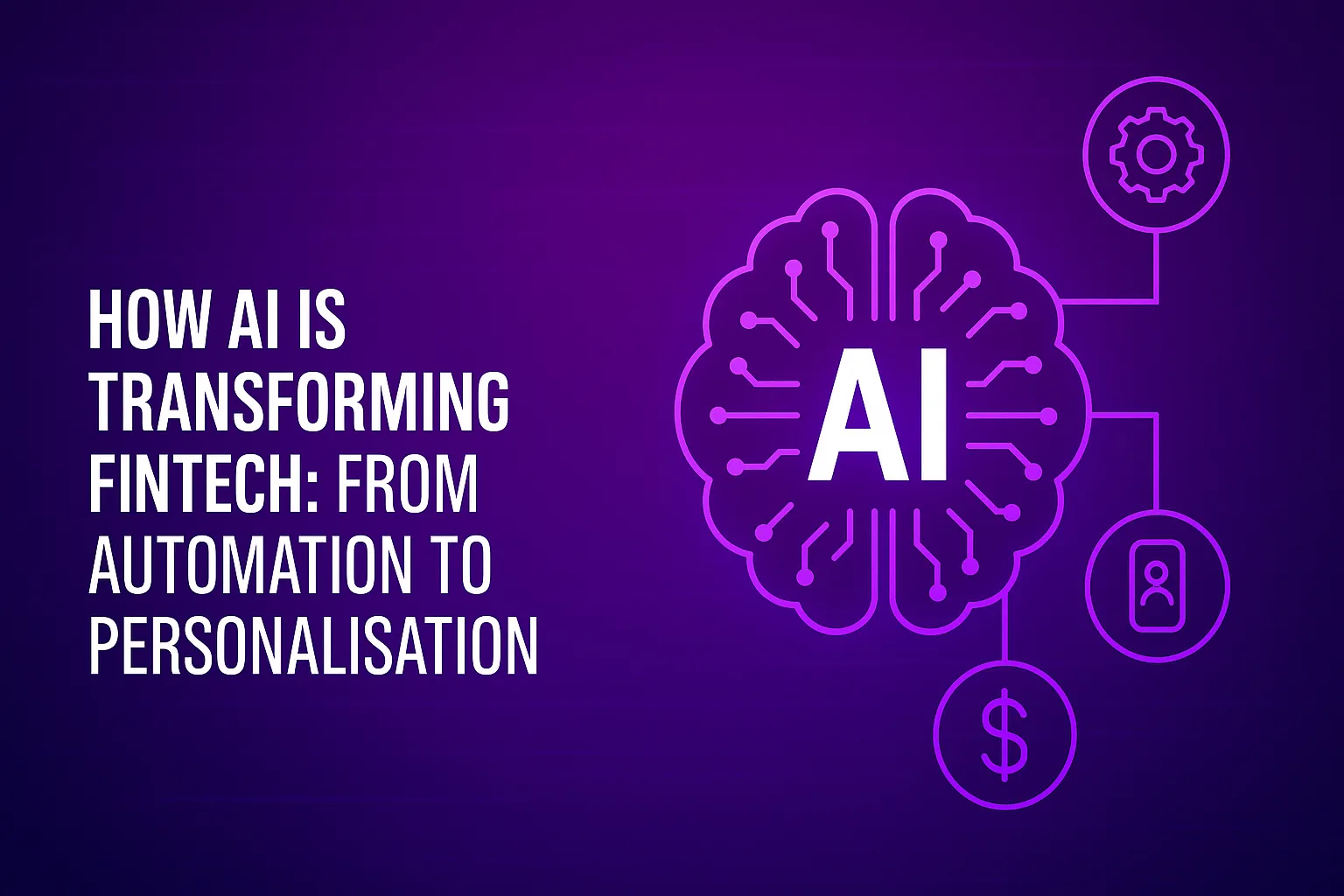Artificial intelligence is no longer a futuristic concept in finance, it is now a core driver of innovation across the industry. From underwriting loans to managing investments to preventing fraud, AI in fintech is reshaping the way financial services are designed, delivered, and consumed.
Understanding how AI is impacting fintech is crucial for founders, investors, and finance teams looking to stay competitive in a rapidly evolving landscape. The integration of AI into fintech is not just about cost savings, it is about creating smarter, faster, and more personalised experiences for customers worldwide.
Intelligent Automation Across Financial Operations

One of the first areas where AI has made a significant impact is automation. Robotic process automation (RPA) combined with machine learning models has allowed fintech companies to streamline repetitive tasks such as customer onboarding, KYC verification, loan application processing, and transaction monitoring.
Instead of manual document review, AI can verify identities, check compliance documents, and flag inconsistencies at scale, improving speed and reducing error rates. Chatbots and virtual assistants, powered by natural language processing (NLP), now handle millions of customer service inquiries across fintech platforms, reducing wait times and operational costs.
This intelligent automation is freeing up human teams to focus on higher-value activities like relationship management, complex risk assessment, and strategic planning.
AI & Fintech: Personalisation at Scale

AI enables fintech companies to move beyond mass-market products toward deeply personalised financial experiences. Recommendation engines suggest tailored investment portfolios, budgeting tips, insurance options, and credit products based on individual behaviours and financial goals.
For example, robo-advisors like Betterment and Wealthfront use AI algorithms to dynamically adjust investment portfolios based on market conditions and client risk profiles. Neobanks and personal finance apps analyse transaction data to offer proactive savings advice, debt reduction strategies, or customised rewards programmes.
In lending, AI-driven models assess creditworthiness using alternative data sources such as cash flow, gig economy income, or even social signals, opening up financial access for underserved populations previously invisible to traditional scoring systems.
Fraud Detection and Risk Management

As digital finance grows, so do threats from fraud and cybercrime. AI is a powerful ally in defending fintech platforms against these risks. Machine learning models can detect anomalous patterns in real-time, flagging suspicious transactions, login attempts, or account behaviour before damage occurs.
Unlike traditional rule-based fraud systems, AI models continuously learn from new data, adapting to evolving attack vectors without needing constant manual rule updates. This makes fraud prevention faster, more accurate, and more resilient.
AI also enhances risk management in areas like anti-money laundering (AML), transaction monitoring, and regulatory reporting. Predictive analytics help institutions anticipate risk exposures and intervene early, improving overall financial system integrity.
Democratizing Financial Advice

AI is levelling the playing field for financial advice. Previously, personalised financial planning was accessible mainly to high-net-worth individuals. Now, digital advisors and AI-powered apps offer affordable, tailored advice to a much wider audience.
Platforms like Cleo and Plum provide everyday consumers with budgeting assistance, micro-savings automation, and financial health insights, often for free or at low cost. As AI models become more sophisticated, their advice increasingly mirrors what human advisors might recommend. But delivered instantly, continuously, and without bias.
This democratisation of advice is one of the most transformative effects of AI in fintech, helping millions take control of their financial futures with tools once reserved for the wealthy.
AI & Fintech: Challenges and Ethical Considerations

Despite its promise, AI in fintech also raises important challenges. Algorithmic bias is a serious risk if training data reflects societal inequalities. Models that deny loans or recommend investments unfairly could deepen existing financial exclusion.
Transparency is another concern. Black-box AI models are difficult to audit and explain, which is problematic in highly regulated sectors like banking and insurance. Regulators are beginning to push for explainable AI standards to ensure accountability.
Data privacy remains a critical issue. Fintech companies must balance leveraging data for smarter products with respecting customer consent and complying with regulations like GDPR and CCPA.
Responsible AI development, bias mitigation strategies, and robust governance frameworks are essential to ensure that the benefits of AI are shared fairly and ethically.
AI is not simply an add-on to fintech, it is becoming the foundation for a new generation of financial services. Faster, smarter, more inclusive, and more resilient. Companies that understand how to integrate AI thoughtfully and ethically will lead the next wave of innovation in finance.














